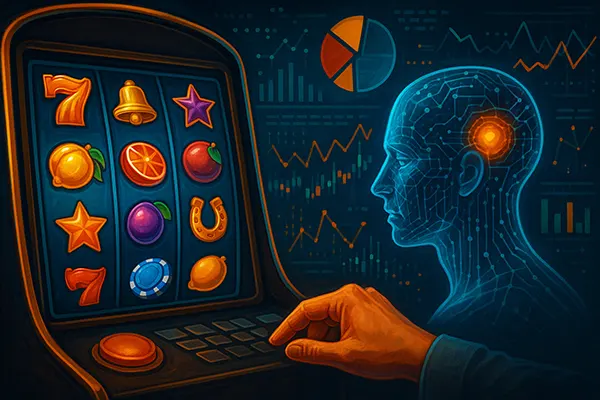How Gaming Algorithms Shape Player Behaviour: The Science Behind Online Casinos

In the modern iGaming industry, player behaviour is anything but random. Hidden beneath flashy visuals and immersive gameplay, there is a calculated design orchestrated by complex gaming algorithms. These algorithms are more than just mathematical formulas – they are behavioural engineers, subtly guiding decisions, expectations, and even emotional reactions. This article explores how algorithmic mechanics work in online casinos, the psychological strategies behind them, and their measurable impact on player choices.
Understanding the Mechanics of Gaming Algorithms
At the heart of every online casino game is a set of instructions called a Random Number Generator (RNG). While the term suggests unpredictability, the reality is more controlled. RNGs produce sequences that simulate randomness, but their behaviour is predictable under scrutiny. This ensures fairness while also allowing developers to implement specific Return to Player (RTP) rates – a key variable that influences player experience.
Return to Player, or RTP, is the theoretical percentage of wagered money a slot or table game pays back over time. For example, a game with a 96% RTP will, over an extended period, return 96 kr for every 100 kr wagered. By adjusting the RTP and combining it with game volatility (how often and how much a game pays out), developers can create games that feel exciting, frustrating, or rewarding – all by design.
Moreover, features like bonus rounds, near misses, and progressive jackpots aren’t just for entertainment. They are algorithmically calculated stimuli that increase player engagement. The illusion of control, created through interactive features like “hold” or “re-spin,” reinforces participation, encouraging players to keep playing under the belief that their decisions influence outcomes.
The Psychology of Engagement Through Design
Online casinos leverage behavioural psychology to enhance the effects of algorithms. One of the most studied phenomena is the concept of “losses disguised as wins” (LDWs). These are spins where a player wins less than their bet but receives celebratory animations and sounds. Although technically a loss, the brain interprets it as a win, boosting dopamine levels and reinforcing the urge to play.
Other psychological triggers include variable reward schedules – a principle borrowed from behavioural science. By offering unpredictable rewards at irregular intervals, casinos replicate the mechanisms that make social media or video games so addictive. The anticipation of a win, even more than the win itself, activates areas in the brain associated with pleasure and motivation.
Gamification also plays a significant role. Progress bars, daily missions, loyalty levels, and badges transform gambling into a game-like experience, reducing the perceived risk. Players become more invested emotionally and psychologically, not just financially, as they chase achievements and complete objectives engineered into the system.
Player Data and Adaptive Algorithmic Behaviour
Modern online casinos don’t rely solely on static algorithms. They now implement dynamic systems that adapt based on individual user behaviour. Machine learning and AI models analyse gameplay in real time, adjusting offers, bonuses, and even suggested games to maximise engagement and revenue.
Data collected from session length, bet size, win/loss ratio, and interaction with promotional offers feeds into adaptive systems. These systems can trigger tailored pop-ups, offer personalised bonuses, or suggest games that match the player’s spending pattern. This data-driven approach increases retention by catering to the player’s habits and psychological profile.
Such personalisation isn’t inherently malicious, but it raises ethical questions. There’s a thin line between enhancing user experience and exploiting behavioural patterns. Many regulators, including the UK Gambling Commission, are now closely monitoring how these adaptive mechanisms operate, ensuring they don’t cross into manipulative territory.
Regulation and Responsible Gaming Algorithms
As algorithmic personalisation evolves, so does the importance of responsible gaming measures. Regulatory bodies now require casinos to implement algorithms that detect signs of problem gambling. This includes identifying patterns such as chasing losses, increased bet amounts after losses, and excessively long play sessions.
These responsible gaming algorithms can flag risky behaviour and prompt interventions, such as session reminders, cooling-off periods, or mandatory breaks. In some cases, players may be automatically excluded from promotional campaigns if signs of compulsive behaviour are detected.
Additionally, self-exclusion tools, deposit limits, and reality checks are increasingly being baked into algorithmic infrastructure. Instead of being static settings, they are part of a dynamic interface that adapts in real time to ensure user safety while preserving entertainment value.

The Future of Behavioural Algorithms in iGaming
The development of artificial intelligence and big data analytics is accelerating the evolution of gaming algorithms. In 2025, we already see the integration of neural networks capable of simulating human decision-making, enabling even more advanced predictive modelling. This means that casinos can pre-emptively anticipate behaviour and customise experiences at an unprecedented level.
Future algorithms will likely focus on mood detection and real-time sentiment analysis. By analysing the speed of interaction, in-game decision changes, and even biometric feedback via mobile apps, platforms will aim to create responsive experiences that match the emotional state of the user. While this can enhance enjoyment, it poses critical questions about consent and data ethics.
Transparency will be crucial. Industry leaders are being urged to disclose how algorithms work and what data is collected. We can expect to see an increase in algorithmic audits, third-party certifications, and possibly the introduction of international standards for ethical game design, especially in the context of emerging technologies like virtual and augmented reality gambling platforms.
Striking a Balance Between Innovation and Ethics
The line between immersive gaming and manipulation is often blurred by the sophistication of modern algorithms. While these tools offer incredible potential for personalised entertainment, they also carry the risk of overstepping ethical boundaries. Operators must be vigilant, ensuring that innovation doesn’t come at the expense of player well-being.
It is increasingly important that developers and casino platforms adopt transparent practices, provide clear opt-in choices for personalised data use, and maintain an ongoing dialogue with regulators and players alike. The focus should remain on creating engaging yet safe environments where technology serves enhancement, not exploitation.
In conclusion, understanding the science behind gaming algorithms isn’t just useful for regulators or developers – it empowers players. By knowing how systems work, individuals can make more informed choices, set boundaries, and enjoy the experience on their own terms, rather than those dictated by code.
